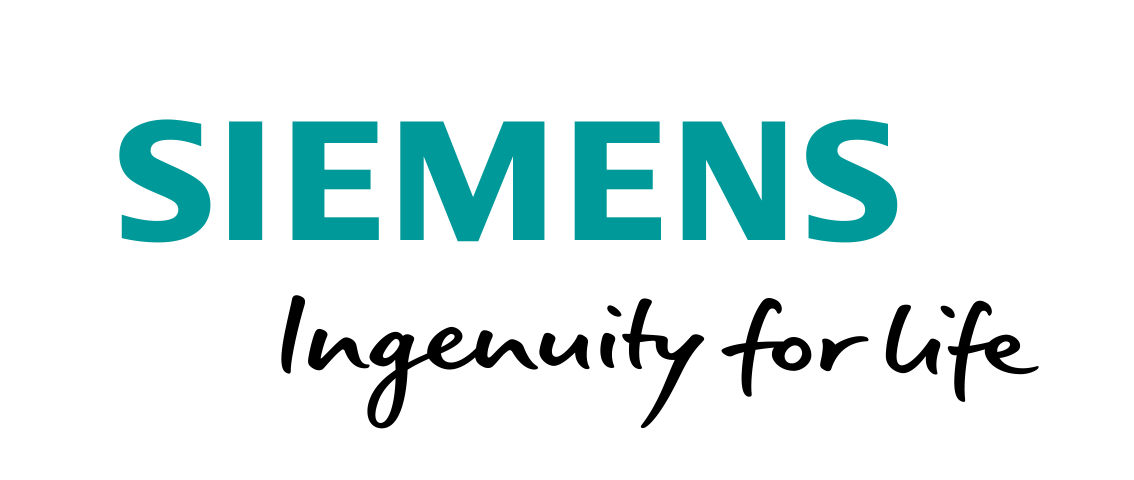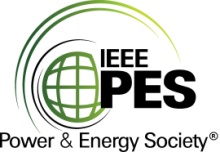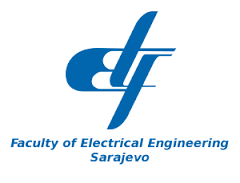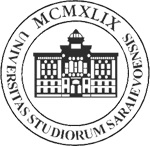Industry panel #1.1 – Opportunities and challenges of mutual cross-border support among regional Transmission System Operators
Organizers:
J.V. Milanovic, The University of Manchester, UK
Panelists:
Mario Gudelj, Chairman of the Board, HOPS – Croatian TSO
Milodrag Kosarac, Director General, NOSBIH – TSO of Bosnia & Herzegovina
Dragan Kujovic, Executive Director, CGES – Montenegrin TSO
Jelena Matejic, General Manager, EMS – Serbian TSO
Aleksander Mervar, Chief Executive Officer, ELES – Slovenian TSO
Sasho Vasilevski, Director General, MEPSO – TSO of FYR of Macedonia
Abstract:
EU committed to lower greenhouse gas emissions by 40% in 2030 with respect to 1990 and to reach a share of renewables of at least 27% by 2030. These targets aimed to help the EU achieve a more competitive, secure and sustainable energy system and to meet its long-term 2050 greenhouse gas reductions target. According to [3], the EU28 as a whole is on track to meet and even exceed its 2020 GHG targets. This is also supported by the positive evolution of renewable penetration, where the EU 28 has met its interim target. The increasing share of fluctuating Renewable Energy Sources (RES) has become key to improve the carbon footprint of the European electricity system and achieve energy and climate change policy goals. This increase has been accompanied –and facilitated- by an emerging decentralized RES ecosystem and the promotion of specific interconnection projects. Even though he countries in South Eastern Europe are on track to achieve their RES penetration targets, the region still has a huge potential especially with regards to PV and Wind production – to become a clean energy breeding ground for Europe. This high interconnection rate between countries not only serves to mitigate the external dependency – still high for some countries – but also to efficiently manage the common production capacity of the region. Whilst some western countries, have a rather high excess of installed capacity, SEE has managed to keep constrained the capacity costs. This is critical in a scenario where larger RES penetration is expected: it is necessary to keep the balance between installed capacity and interconnection costs, optimising not only the physical connections, but also the way they are used to promote the adoption of clean energies. It is in this context where regional energy balancing becomes a priority. A set of solutions boosting regional cross-border cooperation, balancing and re-dispatching of zonal resources, by considering also cross-border congestions (cross-border capacity) and specific organization of ancillary services markets and mechanisms in each South-Eastern national market is necessary and will be addressed by H2020 project CROSSBOW that all regional TSOs are part off. The panel of top industry leaders from the regional TSOs will discuss these and other questions related to operation and collaboration of regional TSOs.
Industry panel #1.2 – Industry Trends, Opportunities, and Innovations for the Grid of Future
Organizers:
Damir Novosel, Quanta Technology, USA
Edina Bajrektarevic, NextEra, USA
Panelists:
Eric Gleason, NextEra, USA
Chris Root, VELCO, USA
Shay Bahramirad, ComEd, USA
Bruno Meyer, RTE, France
Drago Bago, Elektroprivreda HZHB, B&H
Abstract:
Reliable and efficient electrical grid operation is critical to society. The electrical power and energy industry in the next decades is changing rapidly to meet the demands of the society and address challenges. New technology trends include development of more efficient, reliable, and cost-effective renewable generation and Distributed Energy Resources (DER), energy storage technologies, Electric Vehicles (EV), monitoring, protection, automation, and control devices, and communications that offer significant opportunities for realizing a sustainable energy future. We are at a crossroads in making business and technical decisions that will allow us to optimally and cost-effectively manage the grid. The presentation will address some of the challenges and opportunities facing modern grids and how industry trends and innovation will shape the future grid. Included topics are:
- Industry Trends and Transformation Drivers
- Competitive opportunities and challenges with distributed energy resources, microgrids, electrical vehicles and the role of storage
- Competitive opportunities and challenges with high voltage transmission grid in North America and the role of storage as transmission asset
- Technologies for the changing nature of the grid
- Grid modernization roadmap
- Key success factors to prepare for the grid of the future
Industry panel #1.3 – Power quality challenges and solutions in transmission networks with high penetration of power electronics – interim results of EU H2020 project MIGRATE
Organizer:
Boštjan Blažič, University of Ljubljana, Slovenia
Panelists:
Blaž Kirn, ELES, Slovenia
Jako Kilter, Tallinn University of Technology, Estonia
Jovica Milanović, University of Manchester, UK
Kai Strunz, Technische Universitat Berlin, Germany
Andrej Souvent, Elektroinstitut Milan Vidmar Ljubljana, Slovenia
Elvisa Becirovic, University of Manchester, UK
Abstract:
One of the focuses of the Migrate project is the evaluation of power quality (PQ) issues expected in future transmission networks due to high penetration of power electronic (PE) devices. PE devices, such as PE-interfaced wind generators, FACTS devices and HVDC links, are indeed one of the major sources of network disturbances (harmonics, flicker, voltage and frequency variations), while also being very sensitive themselves to PQ disturbances. The goal within the Migrate project is to propose a methodology for the evaluation of PQ levels in future power networks, where a high-share of PE devices is expected. The addressed topics include PE-device simulation models for PQ studies at transmission level, PQ measurements with PMUs and a probabilistic methodology for the assessment of disturbance propagation.
Contributions:
- Blaž Kirn, ”Project Migrate overview and power quality challenges in future power networks”
- Jako Kilter, ”Validation of the use of PMUs for PQ-issues mapping”
- Boštjan Blažič, ”Development of PE-devices models for harmonic studies in transmission networks”
- Kai Strunz, ”Frequency Variations as a Power Quality Issue”
- Jovica Milanović and Elvisa Becirovic, ”Probabilistic approach for assessment of harmonic propagation in power networks”
- Andrej Souvent, ”Visualization tool for graphical presentation of disturbances”
Industry panel #2.1 – Microgrids as Enablers in DER Integration
Organizers:
Muhidin (Dino) Lelic, Quanta Technology
Panelists:
Amin Khodaei, University of Denver, USA
Shay Bahramirad, Commonwealth Edison, USA
Muhidin (Dino) Lelic, Quanta Technology, USA
Shashank Pande, Siemens, Germany
Izudin Džafić, International University of Sarajevo, Bosnia and Herzegovina
Abstract:
Though the concept of microgrids is not new, there is a significant amount of innovation occurring in the field. Utility-operated microgrids not only offer significant improvements in regional resilience, but also enable valuable experience and research-based insights that can improve the design and operations of the broader distribution grid. The speakers will address cutting-edge research associated with the development of a microgrid master controller (MMC) and other major advancement in application of microgids for integration of distributed energy resources (DER) in distribution systems. They will address additional learnings on crucial topics such as how an MMC can optimize the use of solar PV and storage within a microgrid, what are the benefits associated with a microgrid project, and how syncrophasors can support the development of advanced operations like islanding. Practical examples of utility microgrid, such as the Bronzeville Community Microgrid by ComEd, which can operate a clustered microgrid, and will be commercialized and implemented by the end of 2019 will be presented. The results and lessons learned from the development of the state of the art BCM utility microgrid can be leveraged for advancement of this technology in Southern European power grid. In summary, the panelists will discuss how practical challenges can be overcome by a collaborative approach between research, development and implementation experts to lead the field forward.
Industry panel #2.2 – CROSSBOW – CROSS-BOrder management of variable renewable energies and storage units enabling a transnational Wholesale market
Organizer:
Jovica Milanović, The University of Manchester, UK
Panelists:
Manuel Serrano, ETRA, Spain
Bojan Mahkovec, Elpros, Slovenia
Aleksandra Krkoleva, Ss Cyril and Methodius University (UKIM), Macedonia
Stefan Meir, VARTA, Germany
Obrad Skrba, NOSBiH, Bosnia and Herzegovina
Abstract:
The CROSSBOW project is a platform for enabling the aggregated use of renewable energy resources, demand side management and electrical energy storage in 8 South-East European countries. The project is expected to develop a framework and algorithms that will provide guidance to deploy advanced techniques in order to facilitate an increased cross border power transfer at the national and transnational level, while ensuring at all times network voltage, angular and frequency stability. The session will provide a general overview of the project vision and its expected contributions to facilitate the operational flexibility of transnational power networks with a high penetration of renewable energy resources. It will present about the Wide Area Monitoring System (WAMS/WAMPAC) information, which will facilitate (a) real-time decision making, (b) faster and more recise stability problems localization, (c) identification of important factors for WAMPAC implementation, and (d) automated decision-making systems based on WAMS data for increasing the reliability of the power system. Following that, the panel will discuss about the legislative and regulatory issues to facilitate cross-border power exchange and maximizing the benefit of transnational wholesale market. Furthermore, the discussion will be focused on electrical energy storage resources connected at TSO and DSO networks. Also, the session will give a brief overview of the current situation in the transmission system of Bosnia and Herzegovina as well as future prospects in terms of cross – border management solutions foreseen by the CROSSBOW project.
Contributions:
- Manuel Serrano, ”CROSSBOW, clean energy across Europe: South Eastern Europe perspective”
- Bojan Mahkovec, ”WAMS/WAMPAC in real-time decision-making process ”
- Aleksandra Krkoleva, ”Legislation and Regulative Frameworks – developments in South Eastern Europe”
- Stefan Meir, ”Supporting the distribution and transport grids by coordinated use of virtual storage plants”
- Obrad Skrba, ”Cross – border management challenges and perspectives”
Industry panel #2.3 – HVDC grid protection: developing the protection system of future – interim results of EU H2020 project PROMOTION
Organizers:
Dirk Van Hertem, KU Leuven, Belgium
Panelists:
Dragan Jovcic, University of Aberdeen, UK
Willem Leterme, KU Leuven, Belgium
Ilka Jahn, KTH, Sweden
Dantas de Freitas, Supergrid Institute, France
Ömer Göksu, DTU, Denmark
Abstract:
With the ultimate aim of unlocking the full potential of Europe’s offshore resources, PROMOTioN addresses technical, legal, regulatory, economic and financial barriers to the implementation of a meshed offshore HVDC transmission network. By connecting key stakeholders from industry, academia consultancies and transmission system operators, PROMOTioN both provides a platform for interdisciplinary development as well as increases acceptance of required novel technologies and frameworks.
The work of promotion is centered around a number of key challenges related to the development of such offshore DC grids. In this panel, the focus will be on the developments in the field of DC grid protection. The panel will discuss the detection of faults, the development of a multi-functional DC relay, DC breakers and their modeling, risk-based analysis of different protection strategies and the fault ride through behavior of DC connected wind farms.
Contributions:
- Dirk Van Hertem, “Introduction Promotion project and DC grid protection activities”
- Dragan Jovcic, “DC Circuit breakers: modelling, interfaces and performance requirements”
- Willem Leterme, “From DC fault detection to fault clearing”
- Ilka Jahn, “Development of a flexible and programmable DC relais”
- Alberto Bertinato, “Risk analysis for DC protection strategies”
- Ömer Göksu, “Grid code requirements for DC connected wind farms”










